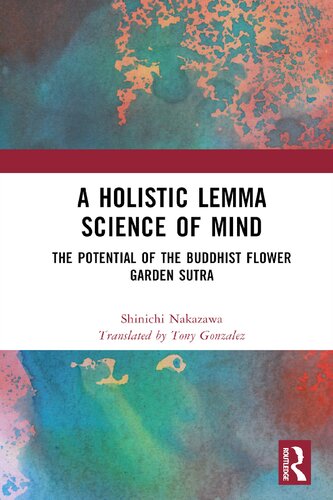

Most ebook files are in PDF format, so you can easily read them using various software such as Foxit Reader or directly on the Google Chrome browser.
Some ebook files are released by publishers in other formats such as .awz, .mobi, .epub, .fb2, etc. You may need to install specific software to read these formats on mobile/PC, such as Calibre.
Please read the tutorial at this link: https://ebookbell.com/faq
We offer FREE conversion to the popular formats you request; however, this may take some time. Therefore, right after payment, please email us, and we will try to provide the service as quickly as possible.
For some exceptional file formats or broken links (if any), please refrain from opening any disputes. Instead, email us first, and we will try to assist within a maximum of 6 hours.
EbookBell Team

0.0
0 reviewsNakazawa connects Buddhist philosophy with modern sciences such as psychology, quantum theory, and mathematics, as well as linguistics and the arts to present a perspective on understanding the mind in a world built on interconnection and networks of relations.
While Lemma Science is a new and modern study of humans, its provenance is deeply rooted in the Eastern thought tradition. The ancient Greeks identified two modes of human intelligence: the logos and lemma intellects. Etymologically, logos signifies to "arrange and organize what has been gathered in front of one's self." To practice logos-based thinking, one must rely on language. Thus, humans organize and understand the objects in the universe according to linguistic syntax. In contrast, lemma etymologically signifies the intellectual capacity to "grasp the whole at once." Instead of arranging objects along a time axis, as language does, the lemma intellect perceives the world in an intuitive, non-linear and non-causal manner, comprehending the whole in an instant. This book embarks on a venture to establish a new science based upon the lemma intellect. Using non-logos-based materials, rigorously following lemma-based methods, and transgressing the boundaries of academic fields, Nakazawa seeks to construct this new science as a fluid, dynamic entity.
This book will be of great interest to researchers across the fields of Japanese studies, Buddhist studies, psychology and linguistics.